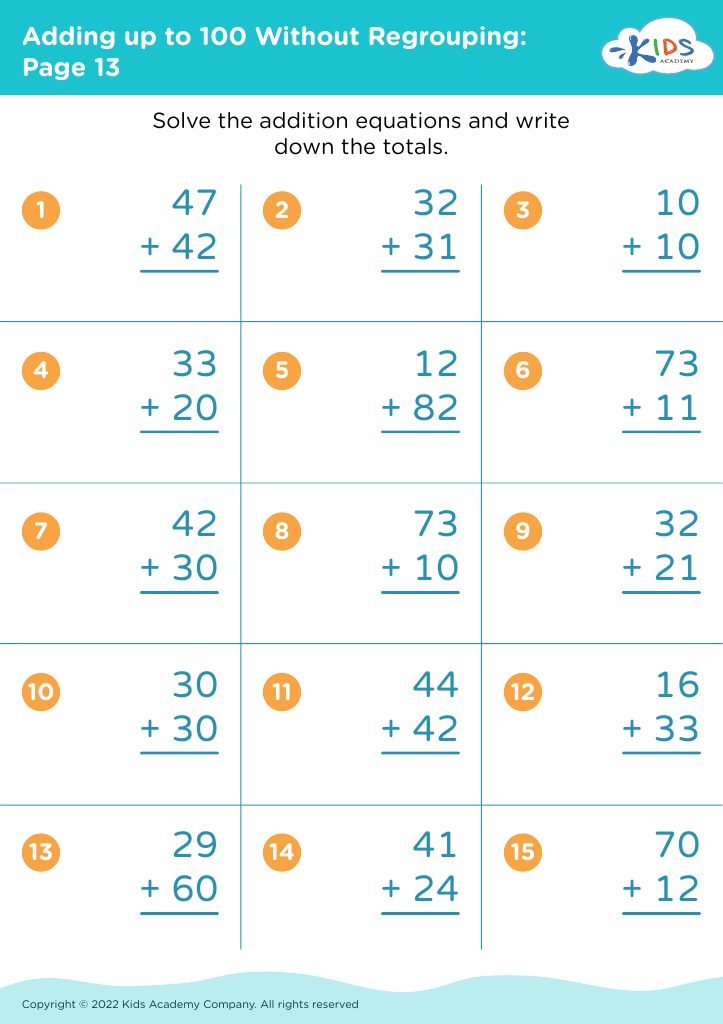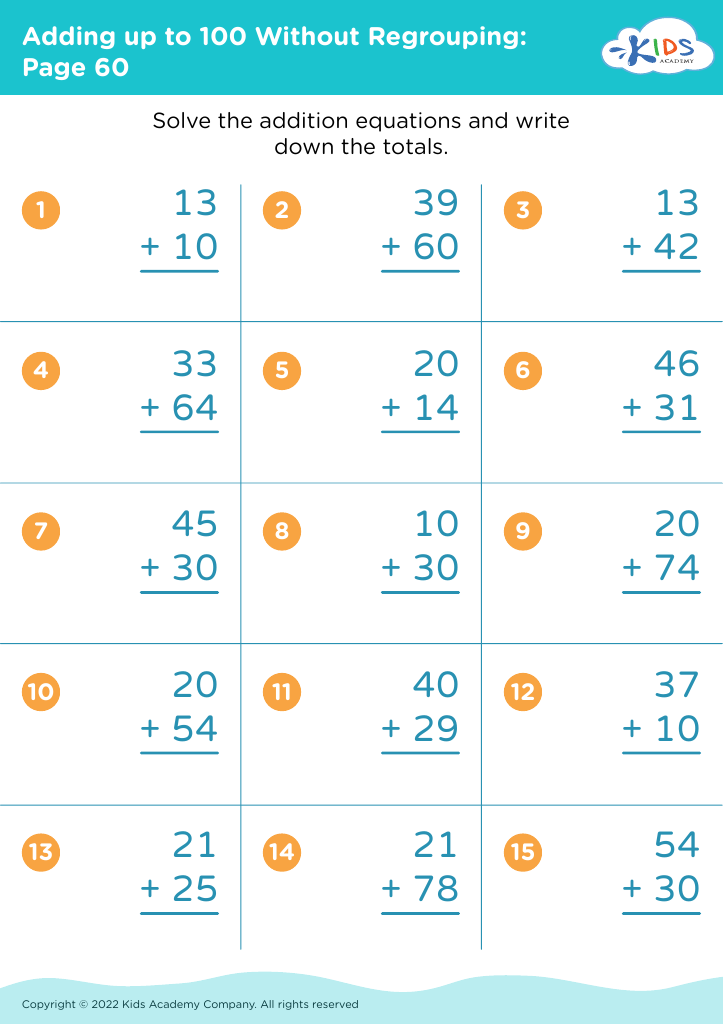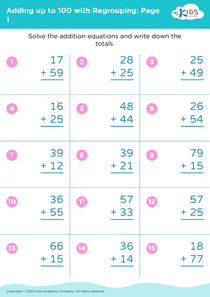Improve reading skills Adding up to 100 Without Regrouping Worksheets for Ages 5-7
3 filtered results
-
From - To
Enhance your child's reading abilities with our "Improve Reading Skills Adding Up to 100 Without Regrouping Worksheets" designed for ages 5-7. These engaging worksheets not only focus on math skills but also incorporate reading comprehension, vocabulary, and critical thinking. Each activity encourages children to read instructions and solve addition problems, allowing them to practice both math and reading simultaneously. With clear visuals and fun exercises, children will be motivated to excel in both subjects. Build confidence and proficiency through our carefully crafted resources, setting a strong foundation for academic success. Download now and make learning a rewarding adventure!
Improving reading skills and basic math concepts, such as adding up to 100 without regrouping, is vital for children aged 5-7 as it provides a strong foundation for lifelong learning. First, reading proficiency enhances overall academic performance. It allows children to comprehend instructions, stories, and material across subjects, boosting their confidence and engagement in school. Additionally, strong reading skills support language development, communication, and critical thinking.
Similarly, mastering basic math, specifically adding up to 100 without regrouping, fosters numeracy skills essential for building more advanced mathematical concepts later on. At this age, children are developing their understanding of numbers and basic operations, which are crucial for everyday problem solving. This foundational skill contributes to their ability to perform mental math, develop logical reasoning, and understand numerical relationships.
Together, these skills create a safe learning environment where children feel capable and eager to explore more complex ideas. When parents and teachers prioritize these abilities, they not only contribute to academic success but also to the children’s overall cognitive and emotional development. Encouraging early reading and math skills lays the groundwork for future learning and personal growth, setting children on a path toward success.














